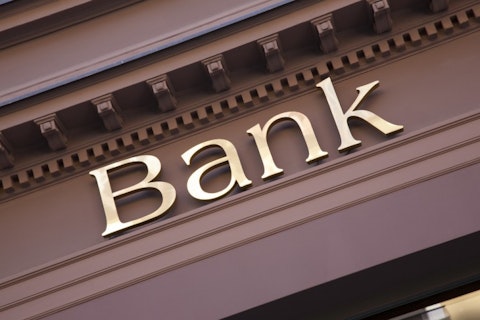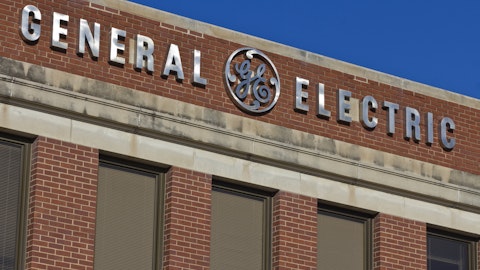The world’s banking giants that also operate in the United States are making headlines today, after the Federal Reserve announced the results of its second round of stress tests yesterday after the closing bell.
The stress tests are designed to check a bank’s ability to survive a severe economic or market shock. Performing these tests allows the regulator to ascertain whether banks can raise dividends and/or initiate share buyback programs without putting too much strain in their capital buffers. This year, 31 out of 33 major banks active in the US managed to pass the test. Let’s have a look at some of the banks that aced the review and those that failed.
We believe that imitating hedge funds and other large institutional investors can be helpful in identifying stocks capable of outperforming the broader market. Through extensive research that covered portfolios of several hundred large investors between 1999 and 2012, we determined that following the small-cap stocks that large money managers are collectively bullish on, can generate monthly returns nearly 1.0 percentage points above the market (see more details here).

Kevin George/Shutterstock.com
BofA Gets The Nod
Bank of America Corp (NYSE:BAC) is in the spotlight today for a good reason. After failing to cleanly pass the Federal Reserve’s stress tests for two years in a row, BofA finally managed to ace the review this year. Shares jumped roughly 4% on Wednesday and are up by 1.3% this morning in pre-market trading. Nevertheless, the stock is still down by approximately 19% for the year. Bank of America Corp (NYSE:BAC) CEO Brian Moynihan has made a promise to return more capital to shareholders and passing the stress tests was crucial to unlocking the necessary funds. Withing minutes of the announcement, BofA said it will increase its dividend by 50% and start a plan to buy back $5 billion worth of stock. At the end of the first quarter, Bank of America Corp (NYSE:BAC) was the most popular financial stock among the funds followed by Insider Monkey, with 110 of them having reported a stake in the company.
Follow Bank Of America Corp (NYSE:BAC)
Follow Bank Of America Corp (NYSE:BAC)
Receive real-time insider trading and news alerts
Citigroup Is More Generous
Citigroup Inc (NYSE:C), America’s fourth biggest bank by assets, also got the green light from the Federal Reserve, paving the way for a boost in dividend and share repurchase program. The company was more generous that BofA, boosting its dividend more than threefold to $0.16 per share, up from $0.05 per share. Citigroup Inc (NYSE:C) also said it plans to increase its share buyback program to $8.6 billion during the next 12 months, up from $7.8 billion announced a year ago. In other news, German banking software company Wirecard AG has agreed to buy Citi’s Prepaid Card Services, as the US giant follows JPMorgan Chase & Co. (NYSE:JPM) out of the business. No terms of the agreement have been disclosed so far. In terms of popularity among top hedge funds, Citigroup Inc (NYSE:C) is just behind BofA, with 101 funds tracked by Insider Monkey invested in the stock at the end of March.
Follow Citigroup Inc (NYSE:C)
Follow Citigroup Inc (NYSE:C)
Receive real-time insider trading and news alerts
On the next page we discuss the two losers and one bank that got a conditional pass.
More Pressure On Deutsche Bank
It’s a gloomy morning at Deutsche Bank AG (USA) (NYSE:DB), as the German banking giant failed to pass the Fed’s stress tests for the second year in a row. Although Deutsche Bank showed some improvement compared to last year’s tests, the Fed still found weakness in the bank’s ability to manage data for risk management and capital planning. This has put even more pressure on the stock which was battered following UK’s vote on exiting the European Union. Deutsche Bank AG (USA) (NYSE:DB)’s shares plummeted by 21% since the vote results came out and are set to fall further today, currently down by 3.2% in pre-market trading. Only 10 of the funds in our database reported a long position in Deutsche Bank AG (USA) (NYSE:DB) in their latest 13F filings, up from nine registered a quarter earlier.
Follow Deutsche Bank Ag (NYSE:DB)
Follow Deutsche Bank Ag (NYSE:DB)
Receive real-time insider trading and news alerts
Banco Santander Also Failed
Banco Santander, S.A. (ADR) (NYSE:SAN)‘s US arm was also rebuked by the Federal Reserve, having failed the test for the third year in a row. Although regulators have the ability to impose harsher punishment for repeated failure, Fed officials have not commented on how they plan to react if the bank fails again next year. The management of Santander Holdings USA has accepted the verdict and promised to work on meeting the regulator’s expectations. “We are financially sound. These results do not affect our ability to serve our customers,” said Scott Powell, Chief Executive Officer of Santander Holdings USA. Having failed the test prevents Deutsche Bank and Banco Santander, S.A. (ADR) (NYSE:SAN) only from sending the profits back to their respective parent companies in Europe. And since neither of them have made this request, the Fed’s decision has no practical impact. Hedge fund sentiment towards Banco Santander, S.A. (ADR) (NYSE:SAN) was unchanged during the first quarter, with the number of long positions staying put at 17.
Follow Banco Santander S A (FRA:STD)
Follow Banco Santander S A (FRA:STD)
Receive real-time insider trading and news alerts
Morgan Stanley Passed But Only Just
Morgan Stanley (NYSE:MS) is the only US bank that managed to conditionally pass the Fed’s stress tests. The regulator was not happy with the bank’s capital planning and has ordered them to resubmit the adjusted documents by the end of the year. The Fed also noted that Morgan Stanley’s scenario for the simulated meltdown test failed to “adequately reflect the risks and vulnerabilities specific to the firm.” Still, the regulator gave the green light for an increase in dividends and stock buyback. Morgan Stanley (NYSE:MS) announced a 33% hike in its dividend to $0.20 per share and a 40% boost to its share repurchase program to $3.5 billion. The stock opened slightly higher this morning, but is still down by 17% year-to-date. At the end of March, 52 of the funds in our database reported a long position in Morgan Stanley (NYSE:MS), up from 50 registered at the end of December.
Follow Morgan Stanley (NYSE:MS)
Follow Morgan Stanley (NYSE:MS)
Receive real-time insider trading and news alerts
Disclosure: none





